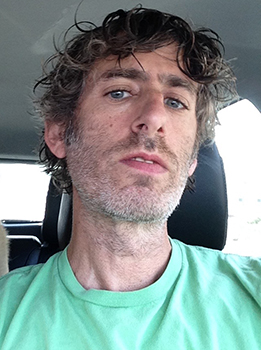
Peter Flax
Last spring, as the world observed its annual commemorations of genocides like the Rwandan Tutsi Genocide and the Holocaust, the staff of The Hollywood Reporter got to talking about how many Holocaust survivors had Hollywood connections, and how many of them were still alive.
From that conversation, a curiosity was sparked, and the magazine embarked on a nearly six-month process of creating a special issue dedicated to telling the stories of some of those “industry” survivors. Features editor Peter Flax conducted most of the interviews and research for the issue, drawing on USC Shoah Foundation testimonies in order to re-tell these stories for a new generation.
Flax said discovering how few Hollywood survivors were still left gave him and the rest of the Hollywood Reporter staff the motivation to tell as many of their stories as they could. The magazine profiled 11 survivors in print and in video interviews, but Flax had thought there would be more.
“This really highlights that the time to find and talk to living survivors is dwindling,” he said.
In watching each survivor’s testimony and conducting new interviews with them, Flax was struck by how astonishing every person’s story was. Speaking to so many survivors gave him a new appreciation for the breadth and depth of their experiences.
“They all had experiences of intense peril, horrific moments, beautiful moments,” Flax said. “Each individual testimony is an incredible story.”
Though he had already watched each survivor’s testimony and their other interviews before conducting the new interviews for The Hollywood Reporter, Flax was still often surprised and moved by what the survivors revealed. Actor Robert Clary, for example, became very emotional while describing his arrival at Auschwitz and later told Flax it was the last time he ever saw his mother.
Flax was also fascinated to see how the survivors told their stories differently than they had years ago in their testimonies, and how their perspectives had changed over time.
The Hollywood Reporter’s special issue is a microcosm of the work of USC Shoah Foundation, Flax said – an attempt to gather as many survivors’ stories as possible in one place so that the next generation can learn from them. He hopes that readers can see that the survivors’ stories are both historical and contemporary, still urgently relevant today.
“Our goals are aligned with what the USC Shoah Foundation is all about,” Flax said. “It’s a useful resource, for us, because it has the DNA of an organization that is doing the kind of testimony that we’re doing in a special issue that the Shoah Foundation does every day.”